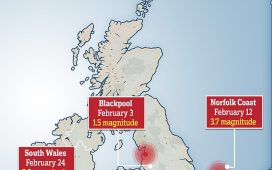[ad_1]
In the summer of 2019, Dr June Raine seemed close to finally putting her feet up. At 67, she was director of the vigilance and risk management of medicines at the Medicines and Healthcare products Regulatory Agency, a role that is roughly as important and impenetrable to the layperson as it sounds.
After an exemplary but obscure 35-year career in public health, she might have been forgiven for relishing the prospect of retirement and more time to devote to her passions of travelling and going to the opera. As it turns out, that wasn’t an option in 2020.
Instead of slowing down, Raine has stepped up to the helm of the MHRA, the UK’s medical regulator, as it embarks on arguably the most vital task in its history: assessing the vaccines that are supposed to end the coronavirus crisis, and ensuring that the rush to get them into action does not come at the cost of patient safety.
If, as Boris Johnson has said, the vaccine is the “cavalry”, June Raine is in charge of the stable.
“Normally the process of making a vaccine and putting it through clinical trials is five or 10 years,” said Sir Gordon Duff, a former chair of the MHRA. “With coronavirus, that has had to be done without compromising safety or standards in less than a year. It is the MHRA that will tell us if a vaccine is safe. And ultimately the buck stops with her.”
Raine may be catapulted to prominence in the same way Chris Whitty and Patrick Vallance were before her. And those who have worked with her are confident she is ready for the task.
“If she was in a film, you might cast her as a friendly GP or a diplomat,” said Stephen Evans, a professor at the London School of Hygiene & Tropical Medicine and a former colleague. “She’s careful, courteous, caring. But her whole life has been devoted to public health, and she has a definite steeliness in the defence of that cause. I’ve seen her in the meetings, and she asks the difficult questions. If there are issues of safety, she will be an iron fist in a velvet glove.”
The MHRA has faced criticism for being, as one expert told the Guardian, “a black box, an organisation that hasn’t always followed the highest standards of transparent, reproducible science – they do the basics well, but if you don’t do things openly you can put public trust at risk.”
And with the government now asking the regulator to start the approval process on the Oxford/AstraZeneca vaccine despite questions over the reliability of claims that it can protect up to 90% of people from Covid, the pressure on Raine to provide visible reassurance about the reliability of the process will be significant.
“The safety of the public will always come first,” she told a press conference this month. “There is absolutely no chance that we will compromise on standards of safety or effectiveness.”
“A COVID-19 vaccine will only be approved once it has met robust standards.”
Dr June Raine, CEO of the @MHRAgovuk, explains how the regulator does not compromise on the safety or effectiveness of any vaccine.
Watch ⬇️ pic.twitter.com/8HnEDcOjHl
— Department of Health and Social Care (@DHSCgovuk) November 21, 2020
Raine has known pressure and adversity in the past – and devastating loss. She met her husband, Tony Raine, at Oxford University’s department of pharmacology in the early 1970s, later having two children. In 1995 he died of colon cancer at the age of 46.
Like Raine, he was known for his exceptional talent, drive and courtesy, according to obituaries that describe him as “one of the outstanding intellects of his generation”. One professional journal said that theirs was “the best of marriages”.
Three years later, Dr Susan Wood, one of the leading lights of the MHRA’s predecessor agency and said to be a mentor figure to Raine, also died at the age of 46.
“It will always stick in my mind, when the chief executive at the time came into a meeting and whispered in her ear that Sue Wood had gone,” said Evans. “She had to leave the room. Only a few people from the agency were at the funeral, but she was one of them. And I think perhaps that history, that empathy, have made her a deeply humane person when working for patients.”
Raine threw herself into work, former colleagues say. In 2006 she became director of the MHRA’s Vigilance and Risk Management of Medicines division, which monitors medical products in use and restricts them or takes them off the market if necessary.
Under her leadership, the division tightened dosing recommendations for children’s paracetamol such as Calpol and introduced new warnings on addictive opioid medicines. Duff also remembers the decision to remove an analgesic, co-proxamol, from sale after it was linked to suicides, a decision that was found to have saved hundreds of lives.
Raine was a trusted figure for families with children who were harmed by the epilepsy drug sodium valproate when she chaired public hearings into its use that ultimately led to the curtailment of its use during pregnancy, said Susan Cole, of the Valproate Stakeholders Network. “She handled the top people from the royal colleges and the NHS, she made sure they heard us. And she made sure they heard her.”
Raine’s career has not been without obstacles. One colleague believes she has faced misogyny from her superiors and in meetings with ministers, “a sexist view that her gentleness indicates a lack of strength. She was patronised.”
Nonetheless, she has prevailed. To Cole, anyone making such assumptions does so at their own risk. “With us, she stood up to people. She was measured, understanding; she was a public servant, most of all. There aren’t that many of them left.”
[ad_2]
READ SOURCE





